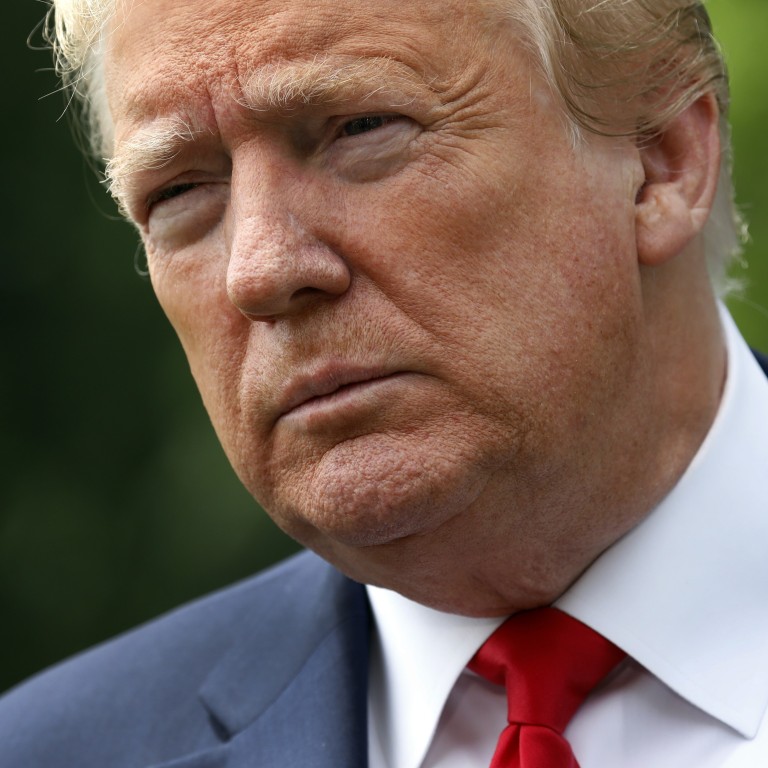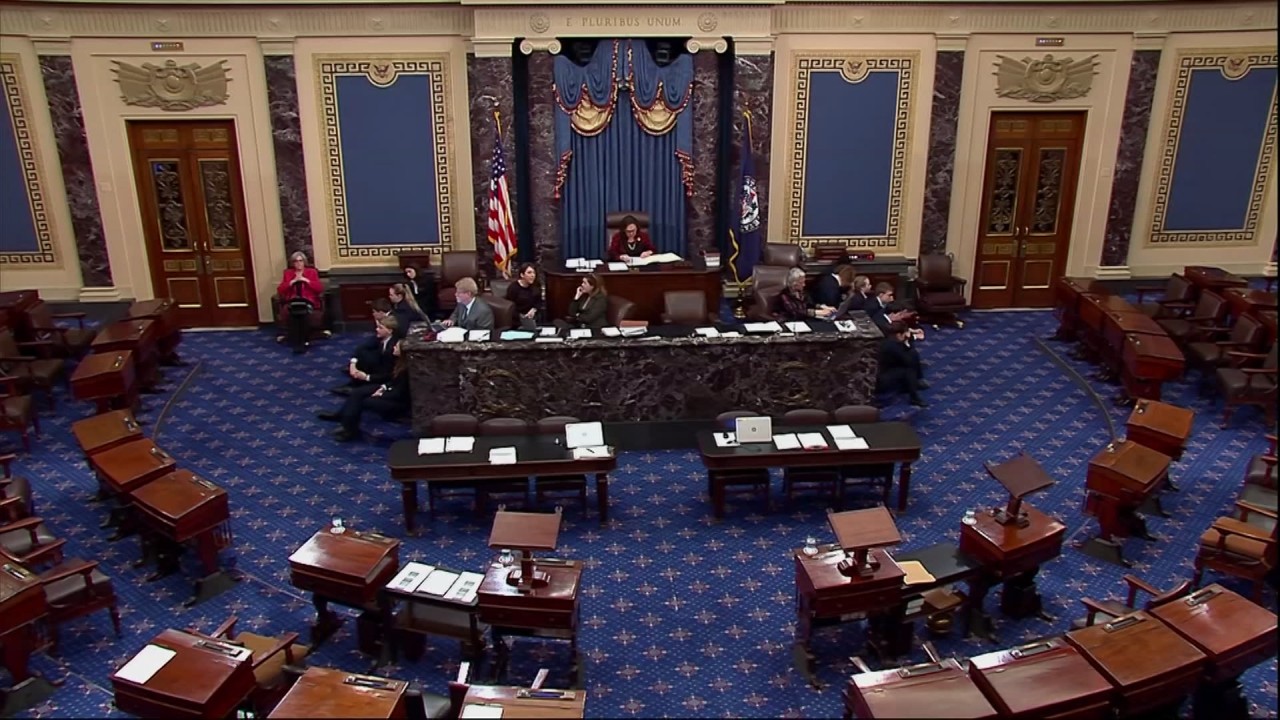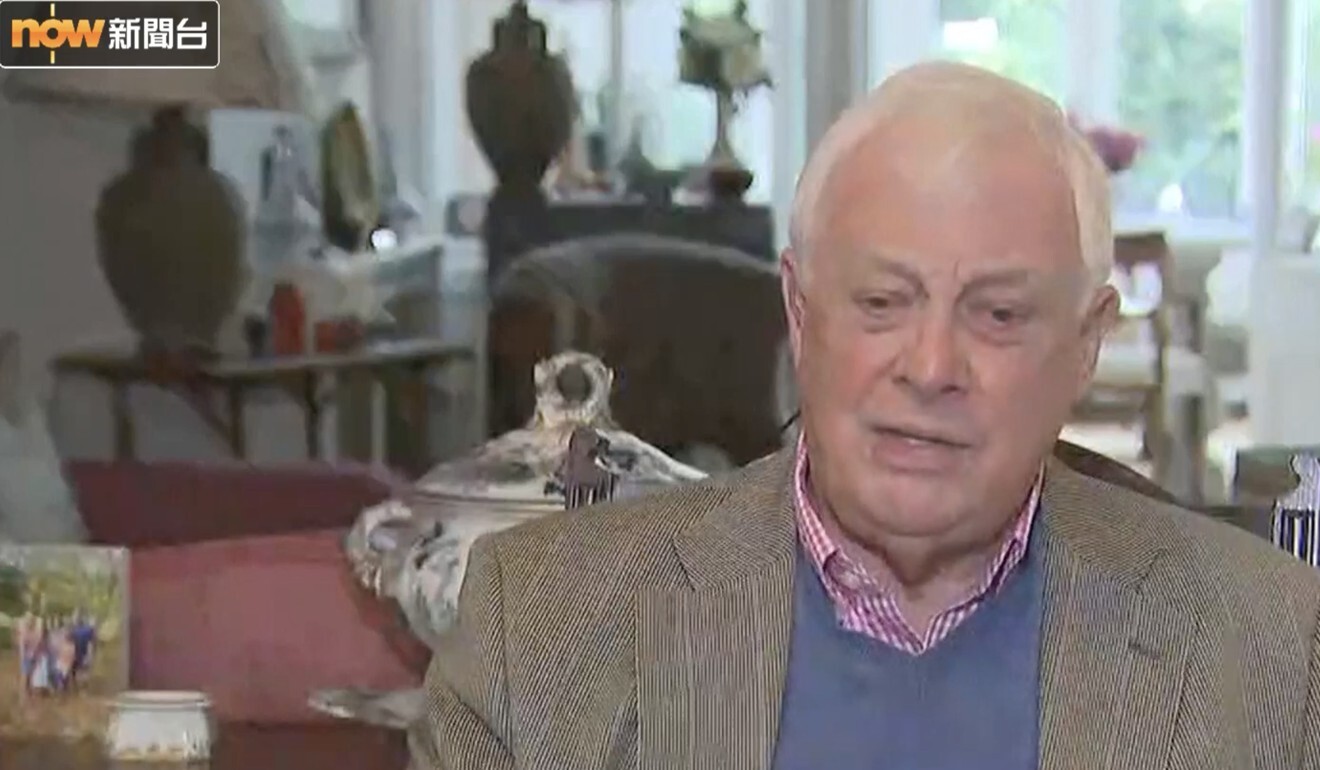
US says Beijing’s new proposal undermines Hong Kong’s semi-autonomy, with Donald Trump vowing to respond ‘very strongly’ if it’s enacted
- The national security proposal, to be introduced on Friday, would effectively bypass Hong Kong’s own legislative process
- Trump says US will react if China enacts legislation; British and EU officials also voice concerns
The US State Department accused China on Thursday of turning its back on commitments to keep Hong Kong semi-autonomous, after Beijing announced it was proposing national security legislation that would effectively limit opposition activity there.
“We urge Beijing to honour its commitments and obligations in the Sino-British Joint Declaration,” said State Department spokeswoman Morgan Ortagus in a statement, referring to the bilateral treaty signed in 1984 that guarantees a “high degree of autonomy” for Hong Kong until at least 2047.
Those commitments, said Ortagus, “are key to preserving Hong Kong’s special status in international affairs, and, consistent with US law, the United States’ current treatment of Hong Kong”.
The legislation, which would effectively bypass Hong Kong’s own legislative process, is expected to ban all seditious activities in the semi-autonomous city, the South China Morning Post earlier reported. The proposal on the legislation will be formally introduced in the National People’s Congress (NPC) on Friday, the first day of the legislature’s annual session.

00:31
Hong Kong faces China imposed national security law
NPC spokesman Zhang Yesui confirmed at a Beijing news conference earlier on Thursday that the legislature would be considering a resolution regarding a decision on “establishing a sound legal system and enforcement mechanism for safeguarding national security in the Hong Kong Special Administrative Region”.
Ortagus said that Beijing’s moves “undermine the [People’s Republic of China’s] commitments and obligations in the Sino-British Joint Declaration”.
Government officials in Europe and Britain also issued statements in support of Hong Kong similar to those made by the US.
Explainer | The key points of the national security law for Hong Kong
The proposal’s likely passage – votes in the legislature rarely stray from the Communist Party line – would pave the way for the national security legislation itself to be voted upon as early as next month, when the NPC’s standing committee is expected to convene.
“Any effort to impose national security legislation that does not reflect the will of the people of Hong Kong would be highly destabilising, and would be met with strong condemnation from the United States and the international community,” said Ortagus.
The State Department remarks came soon after US President Donald Trump promised a strong response from his administration if China followed through on the proposal.
“If it happens we’ll address that issue very strongly,” Trump told reporters while departing the White House for Michigan, though he prefaced his remarks by saying that he did not know about the substance of the proposal. “I don’t know what it is, because nobody knows yet.”
Outrage at Beijing’s proposal was palpable on Capitol Hill, where lawmakers of both parties last year rallied almost unanimously to swiftly pass legislation increasing US scrutiny concerning affairs in Hong Kong.
Pompeo says US report assessing Hong Kong autonomy to be delayed
Signed into law in November, the Hong Kong Human Rights and Democracy Act requires that the US State Department determine within six months of its enactment whether the city maintains a sufficient degree of autonomy to justify continued special trade status by Washington.
Ortagus did not address whether the proposed legislation, if ultimately passed, would mean that Hong Kong no longer enjoyed sufficient autonomy to justify treatment different from any other Chinese city.
But the development is all but certain to be addressed in the State Department’s coming determination, given Secretary of State Mike Pompeo’s announcement earlier this month that the report was being postponed to allow consideration of any Hong Kong-related policy initiatives announced during the NPC session, which had been delayed due to the coronavirus pandemic.

03:11
Donald Trump set to have final say on Hong Kong democracy act as US Senate passes it
Representative Jim McGovern, chair of the Congressional-Executive Commission on China, urged the Trump administration to respond using authorities provided by the Hong Kong Human Rights and Democracy Act, and said that the US should “lead a global coalition to support the people of [Hong Kong]”.
Beijing’s move to bypass Hong Kong’s legislative council struck “at the heart” of the “one country, two systems” framework, McGovern, Democrat of Massachusetts, said on Twitter.
And House Speaker Nancy Pelosi, Democrat of California, said on Twitter that Beijing’s announcement was “deeply alarming”, while its attempts to bypass Hong Kong’s legislature showed “complete disrespect for the rule of law.”
Beijing loses patience and pushes ahead with Hong Kong national security law
Other lawmakers went further, rapidly introducing resolutions condemning the proposal, as well as bills calling for sanctions against Chinese officials – despite the fact that the administration already has authority to sanction foreign individuals deemed responsible for the erosion of autonomy in Hong Kong.
One resolution, introduced by Senator Josh Hawley, Republican of Missouri, and already backed by nine other senators, would make it Congress’ official position that the measure was in violation of the Joint Declaration, and would call on the Trump administration to use all diplomatic means available, including sanctions, to dissuade Beijing from pursuing it.
In Europe, meanwhile, current and former political figures joined in the global chorus of concern about the legislation’s ramifications for Hong Kong’s future, particularly its international standing.
Virginie Battu-Henriksson, foreign affairs spokeswoman for the European Union, tweeted that the bloc attached “great importance” to the one country, two systems model, and said that “democratic debate in Hong Kong and respect for rights & freedoms are the best way to preserve it”.
Chris Patten, Britain’s last governor of the former colony, called Beijing’s proposal a “comprehensive assault” on Hong Kong’s autonomy, rule of law and fundamental freedoms.
“At best, the integrity of ‘one country, two systems’ hangs by a thread,” Patten, now chancellor of the University of Oxford, said through a spokesman. “Unless the Chinese Communist regime sees sense, this will be hugely damaging to Hong Kong's international reputation and to the prosperity of a great city.”

A spokesperson for Britain’s Foreign and Commonwealth Office said it was “monitoring the situation closely”, and expected China to “respect Hong Kong’s rights and freedoms and high degree of autonomy.”
“As a party to the Joint Declaration, the UK is committed to upholding Hong Kong’s autonomy,” the spokesperson said.
Tom Tugendhat, chair of the British Parliament's foreign affairs committee, cast doubt on Beijing’s intention to stick to the Sino-British Joint Declaration.
“Unilateral changes could undermine Hong Kong’s autonomy and bring into question the rule of law that has underpinned the territory’s prosperity,” Tugendhat, who also heads the Conservative-led China Research Group, said.
“Britain, the US and others who are supporting the rules-based system that has allowed countries – including China – to prosper in relative peace over recent decades need to remind Beijing the world is watching.”
Help us understand what you are interested in so that we can improve SCMP and provide a better experience for you. We would like to invite you to take this five-minute survey on how you engage with SCMP and the news.


